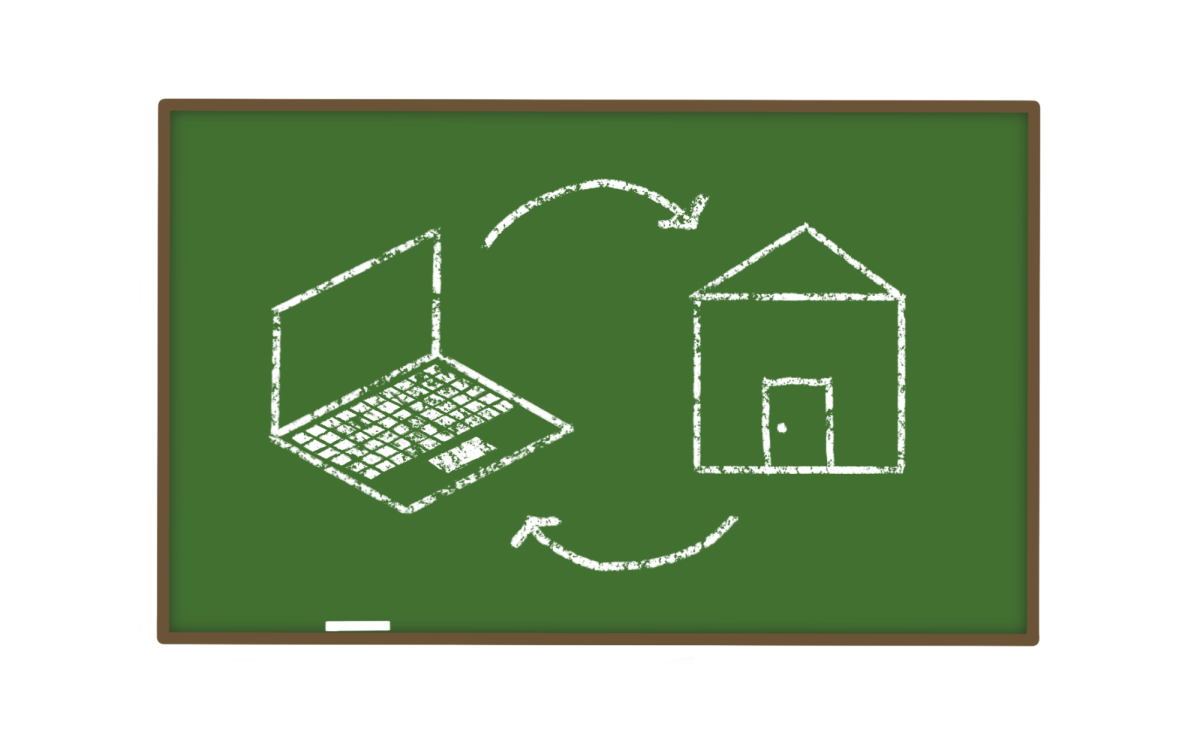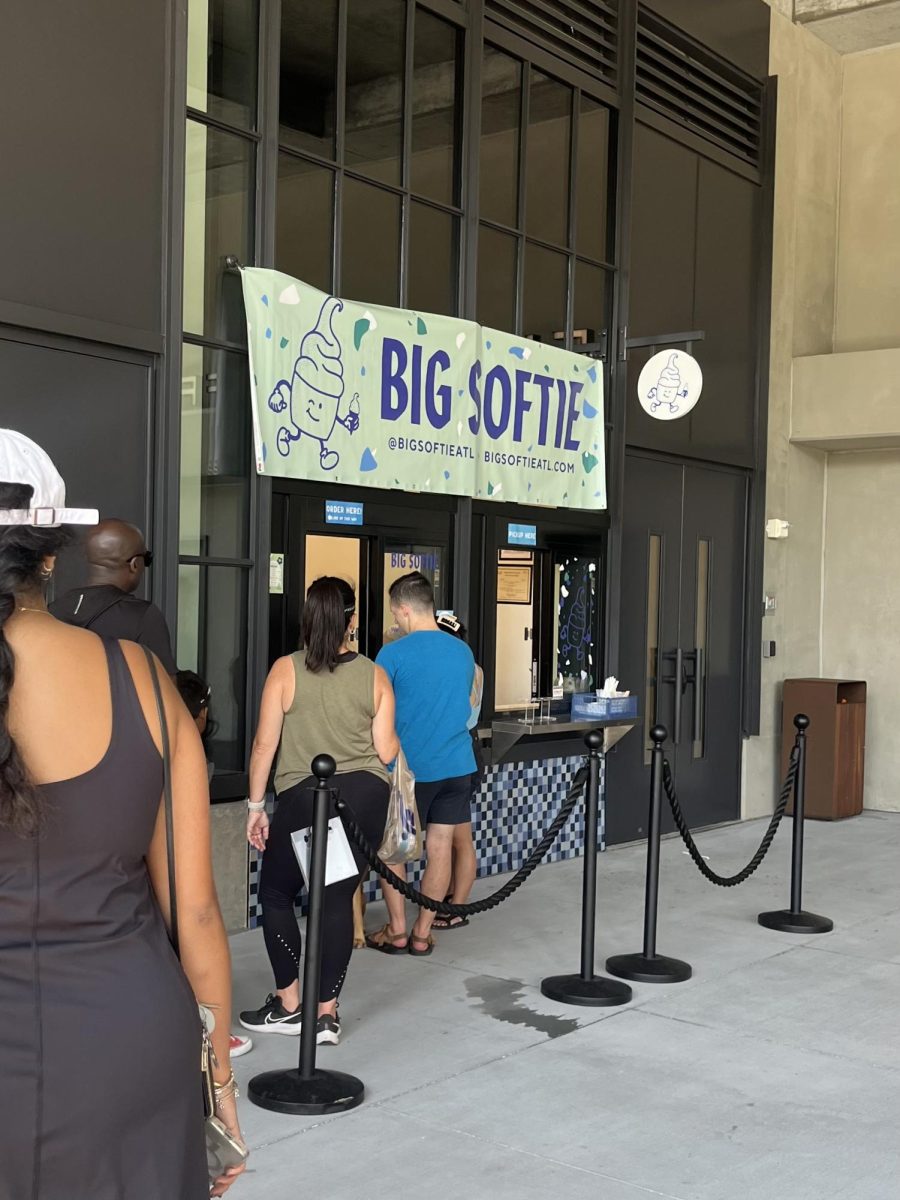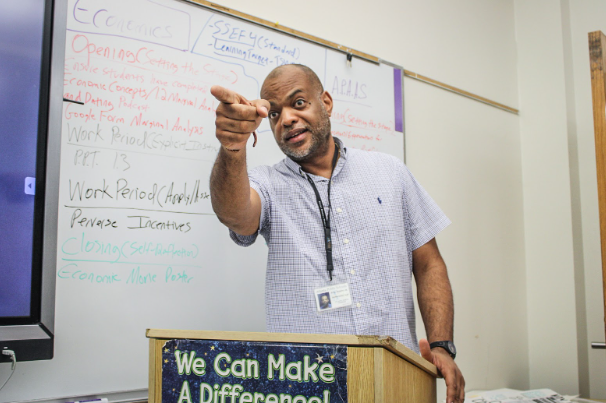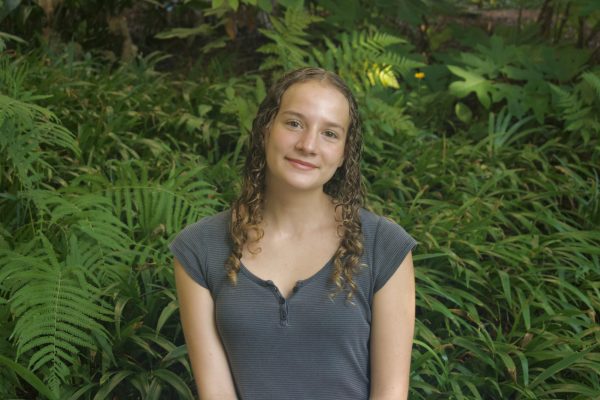After the pandemic, the number of homeschooled students increased, as did the number of students using other nonstandard types of schooling. This shift was due largely to the effectiveness of online classes and to the fear of COVID-19. The motivation to pursue virtual school, as well as its academic and social impacts, vary widely from student to student.
Junior Abigail Williamson was homeschooled in seventh and eighth grades because her family moved back and forth between California and Michigan, also out of concerns about school safety.
“My mom is a nurse and, after COVID, she thought it would’ve been easier and safer for me to stay homeschooled,” Williamson said. “Plus, there was a big rise in school shootings where I lived at the time.”
While never homeschooled, sophomore Neal-Thomas Wright went to Howard Middle School but now attends Oak House School, a small private school that practices alternative educational methods. Wright only has 11 other students in his grade.
“There’s too much work [and] too little [free] time in public schools, so for a while I could handle it,” Wright said. “But after a decent amount of time doing it, it just builds up. [The Oak House School] is a lot more accommodating.”
Sophomore Henry Pollet, who was homeschooled in seventh and eighth grades, took online courses using Georgia Virtual School (GAVS). Pollet said this allowed him to take more advanced STEM, Science Technology Engineering and Math, classes at Midtown, which he was interested in.
“I miss that I used to be able to finish school in October, because it was a virtual program so I’d just work ahead,” Pollet said. “I’d finish late October, late November and just have a lot of free time.”
Pollet said the pandemic sparked the idea to consider online schooling, which wasn’t really an explorable option before COVID-19. Pollet believes the program helped him learn efficiently, but also had drawbacks.
“It was a lot to just sit there at a computer,” Pollet said. “I think it could have been better to do some more hands-on activities.”
Pollet loved his time as a homeschool student because he could stay connected with others through tennis and club soccer, as well as meeting up with his friends on Fridays. Williamson, however, found homeschooling lonely.
“I hated it a lot because I had no friends and I had no motivation to do anything, but sit around all day and look at my computer,” Williamson said. “I felt really out of touch with all my peers.”
While they were homeschooled, both Pollet and Williamson utilized virtual school programs. Both K12, the program Williamson used, and GAVS offer a variety of standardized middle and high school classes. Other online learning organizations such as Atlanta Virtual Academy function similarly.
“It wasn’t that my parents were teaching me,” Pollet said. “I still did a state curriculum, and I think that’s a misconception: that everyone who is homeschooled is taught by their parents. I think a lot of kids do a virtual program.”
Sophomore Zev Oster took advantage of Khan Academy to teach himself from fifth grade through the first half of ninth grade because he wanted to take more difficult and specialized courses. He said that he found it isolating and noted the structural differences of homeschooling.
“I miss control of my curriculum,” Oster said. “What I don’t miss is uncertainty, a lack of an official record that I could show to colleges or employers.”
Like Oster, freshman Anson Wong used Khan Academy to excel in academics during his homeschool years. He focused almost exclusively on math, which he said led homeschooling to be relaxed and easygoing for him. However, he also believes his time homeschooling and at a very small private school to have been detrimental for making friends.
“I had virtually no social skills by sixth grade,” Wong said. “This raised a lot of social challenges for me, especially bullying, but I managed to get just enough of them gone by ninth grade.”
Homeschooling can act as a gateway to take more advanced classes, and furthermore can teach important life skills, Pollet said. GAVS math teacher Stephanie Arrington believes homeschooling can train students in time management and self-advocacy, which she said can be some of the greatest challenges in virtual learning.
“[Virtual learning] teaches [students] to speak up when they need help,” Arrington said. “In a virtual class, the teacher can’t see their face or body language, so students have to reach out if something’s confusing or if they’re struggling.”
Both Williamson and Pollet believe that being homeschooled better equipped them for a high school workload because it encouraged them to learn how to study on their own.
“I think it prepared me for high school because it is a little bit less guided, less looking over your shoulder,” Pollet said.















